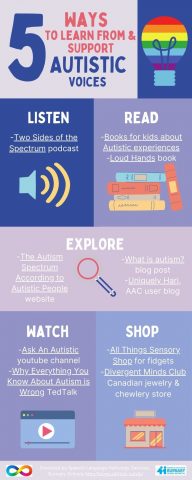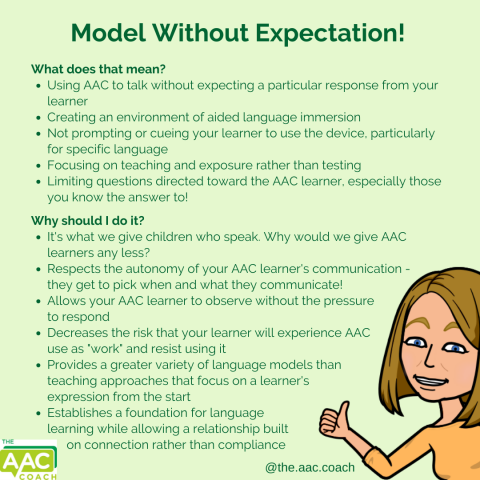
Welcome to the Burnaby School District Speech-Language Pathology Services website!
We hope this site will provide you with resources to support your child with his/her speech and language goals. We invite you to explore the different pages on the top of the navigation bar. Whether your child is working on their articulation skills, language skills, social skills or learning to use their augmentative/alternative devices, you will find lots of information and links to useful resources in each of those areas.
As always, please feel free to contact your child’s speech-language pathologist if you have any questions or concerns. We’re always happy to help and you can find our contact information on the “About” page.
We’re still building sections of our website so come back often for updated resources. You can also subscribe to our site so that you will be notified every time we have updates.
Thanks for stopping by!


 April is Autism Awareness month, previously known as Autism Acceptance month. Here are some links that highlight the differences between Awareness and Acceptance:
April is Autism Awareness month, previously known as Autism Acceptance month. Here are some links that highlight the differences between Awareness and Acceptance:





